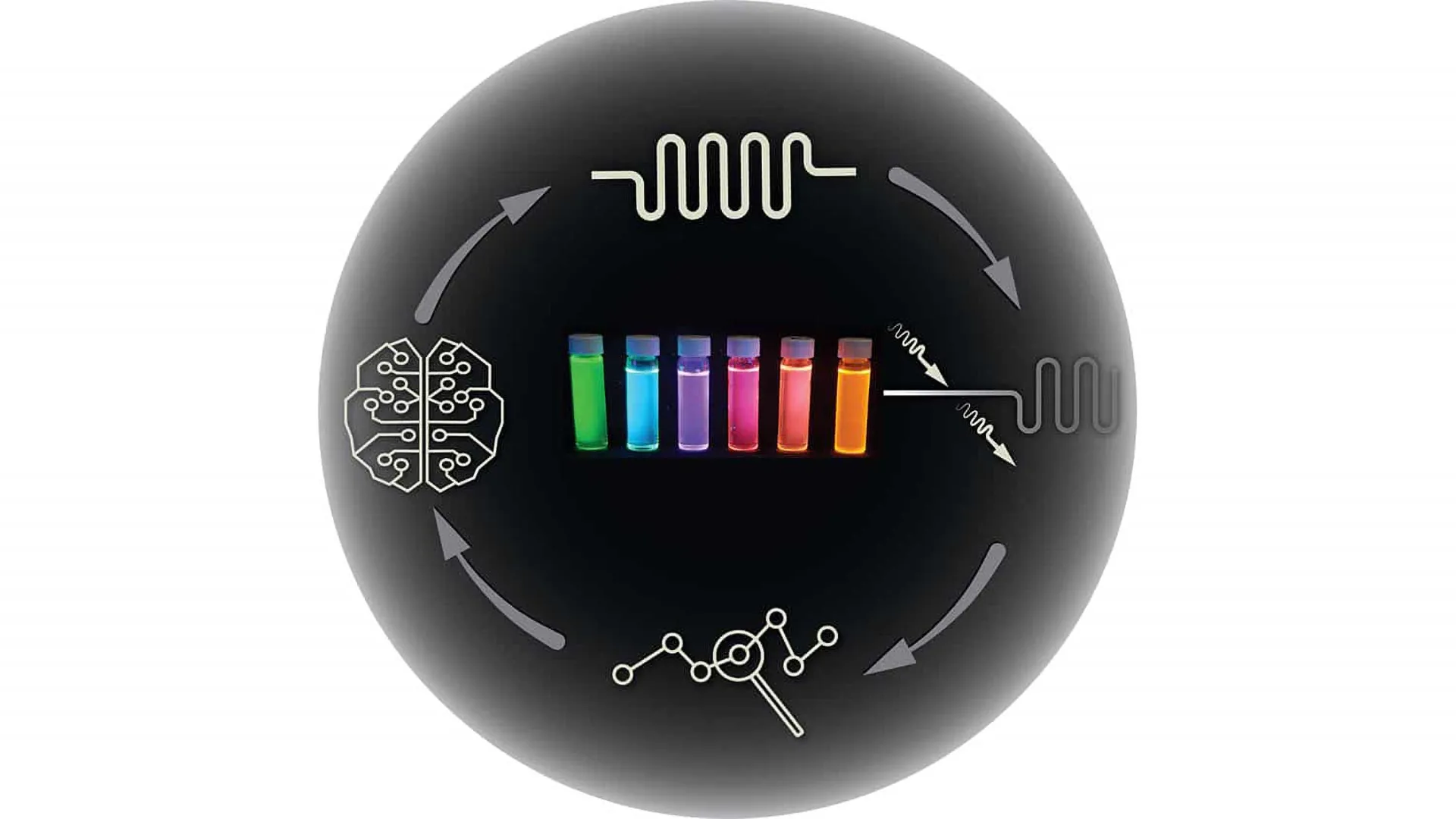Now Reading: AI-Driven Lab Accelerates Material Discovery by 10x
-
01
AI-Driven Lab Accelerates Material Discovery by 10x
AI-Driven Lab Accelerates Material Discovery by 10x

Quick Summary
- Researchers at North carolina State University have developed a new technique for “self-driving laboratories” to collect 10 times more data than previous methods, significantly accelerating materials finding research.
- Self-driving labs utilize machine learning and automation to conduct experiments, making data-driven decisions on the next experiment in real time.
- Traditional steady-state flow experiments require downtime while chemical reactions complete; the new system uses dynamic flow experiments, continuously capturing data every half second during chemical reactions.
- This approach increases efficiency by enabling the system to run nonstop and gather higher-quality experimental data for machine learning algorithms, improving decision-making accuracy.
- The dynamic flow system reduces material consumption, waste production, and costs compared to traditional methods. It also aids in sustainable research practices by optimizing chemical use while achieving faster solutions for clean energy and other societal challenges.
- Researchers demonstrated that their self-driving lab could identify optimal material candidates on it’s first attempt after training using this enhanced method.
- The study was published in nature Chemical Engineering, with support from NSF grants and UNC research Opportunities Initiative.
Indian Opinion Analysis
The breakthrough development of “self-driving laboratories” has far-reaching implications for India’s industrial innovation landscape. With its growing focus on renewable energy solutions and green technologies like hydrogen fuel cells or efficient solar materials, India could benefit immensely from the adoption of systems that expedite discovery processes while minimizing environmental impact.
Such advancements align with India’s dual goals of scientific achievement and sustainability amid pressing environmental concerns. A key differentiator here is the cost-effectiveness of these automated systems-a crucial feature given India’s resource-conscious R&D environment. Moreover, fewer chemicals used translate directly into reducing dependency on imports or rare precursors.
With strategic collaborations or technology transfers possible between Indian institutes like IISc Bangalore or IITs-and global institutions-such innovations could become instrumental in addressing critical challenges ranging from energy efficiency to climate resilience in Indian contexts.
























